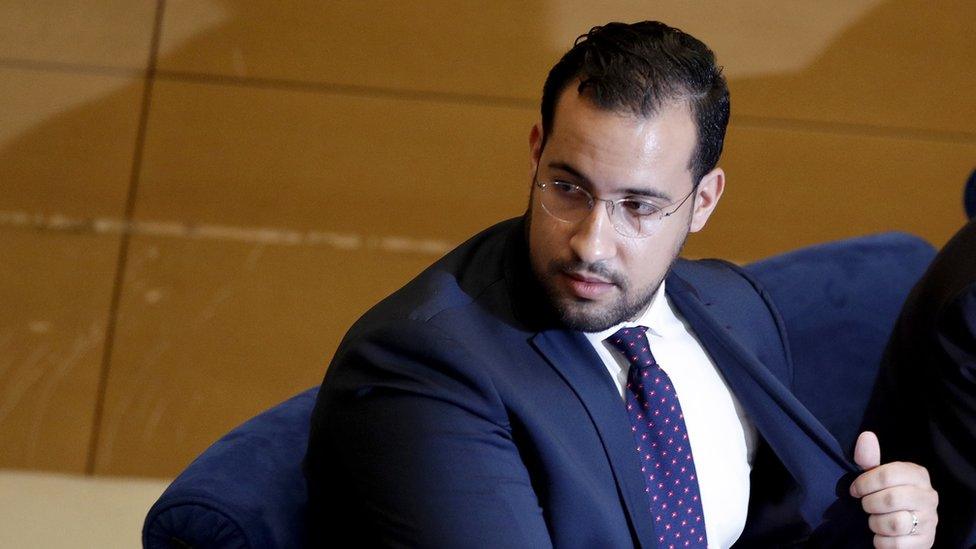Has France's Macron lost his charm?
- Published
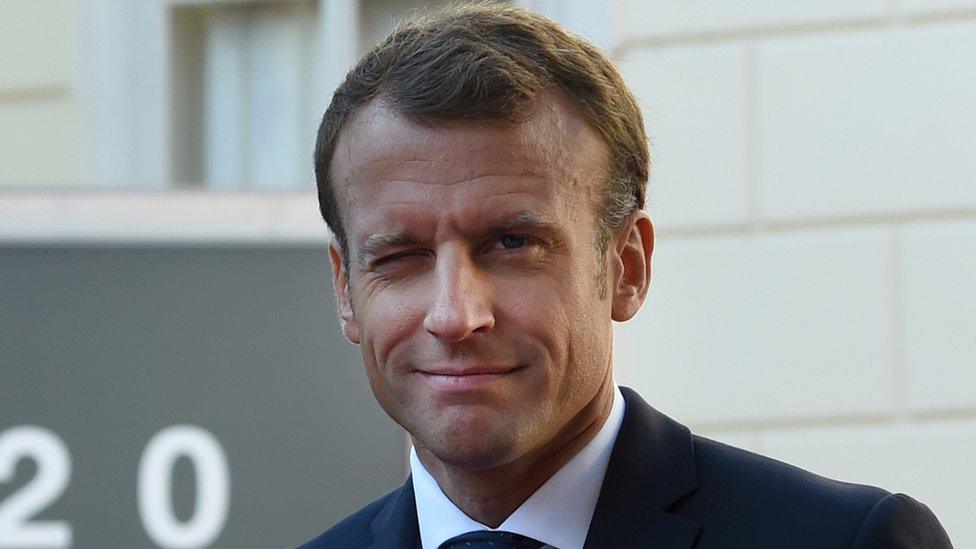
Mr Macron's election in 2017 was a political tour de force - but the shine is wearing off
Emmanuel Macron may be a big figure on the world stage, but at home in France he's facing an uphill struggle to regain public confidence.
After 16 months in office, the promises of economic growth and more jobs have yet to materialise.
The French president is shedding popularity fast.
Should he be worried?
The polling agencies agree that Emmanuel Macron's popularity is at its lowest point.
According to OpinionWay, only 28% of voters are satisfied with his performance - down from 35% in July. With these figures, he is actually more unpopular at this point in his mandate than were either of his predecessors - François Hollande and Nicolas Sarkozy.
A word of caution, though, from Prof Christophe de Voogd of Sciences Po university: "Don't forget that Emmanuel Macron was not elected triumphantly."
"Large numbers chose him merely because he was not [far-right candidate] Marine Le Pen. So his core loyalist vote is actually quite restricted," he says.
"And second, bear in mind that France is not an easy country to rule. There is a long tradition of political discontent, which invariably translates itself into negative ratings."
So what's gone wrong?
Prof De Voogd has summed it up under three Ts: technocracy, taxation and tricks.
"Macron came to power with the promise of political reinvention. It was to be a grassroots, bottom-up kind of politics, with civil society at the helm," he says.
"But it turns out you can't change a political culture just like that.
"Macron's government remains deeply technocratic. He himself is deeply technocratic. Don't forget he went to the National Administration School (ENA) just like the rest of the governing class."
When Emmanuel Macron told a French teen to call him 'Mr. President'
In other words, for the French he argues it is a continuation of the same old top-down politics.
Then there are taxes.
French voters were expecting a green light for growth, but that has not happened. Nor has the promised lowering of the tax burden, he says.
"When you have high expectations and no tangible results - what happens is popular frustration."
And tricks?
That comes down to Macron's summer shocker: the Benalla affair.
Alexandre Benalla was the 26-year-old presidential security aide who was caught on camera in May moonlighting as a plain-clothes policeman and hitting protesters at a demonstration.
Student activist Taha Bouhafs filmed a woman and a man being beaten on 1 May
News of the scandal only broke in July.
And then it emerged that though the Élysée had known about it right from the start, it had handed out the meekest of punishments. Only subsequently, and after much media pressure, was Alexandre Benalla sacked.
Two questions continue to haunt the establishment. How did a young unknown rise to such dizzying proximity to the president? And why was he apparently protected?
"In the UK, the affair would have led by now to the resignation of the home secretary," says Prof De Voogd says. "In France - nothing."
He says French voters are left to conclude that there is one rule for the people at the top - and another for the rest.
And what about Macron the man?
Ask any random group of voters what adjective they would use to describe their head of state, and odds are they will use the word "arrogant".
Time and again, President Macron has been caught on camera saying things about his fellow citizens that are construed as insensitive and insulting.
The most recent occasion was at an open day at the Élysée, when he told an unemployed gardener - who'd complained about not finding work - to try another line of business, like serving tables.
Allow X content?
This article contains content provided by X. We ask for your permission before anything is loaded, as they may be using cookies and other technologies. You may want to read X’s cookie policy, external and privacy policy, external before accepting. To view this content choose ‘accept and continue’.

Sound advice, some would say. Good on the president for speaking the hard truth.
But that is not the majority view in France.
"Macron's problem is that he keeps making these outbursts which convey the message that he is arrogant, disconnected and authoritarian," says Chloe Morin, an expert at polling agency Ipsos.
"Taken by itself, each outburst is trivial. But the accumulation is creating a very negative image. Someone has to tell him to stop."
Does any of this matter?
The president has three and a half more years in office. Plenty of time for the economy to turn the corner.
That is true. On top of that is the fact that in the French system the president is immensely powerful. He creates his own weather, and everyone else dresses accordingly.
And while voters are going off Mr Macron for his domestic policies, they still like the way he's changed the country's international image.
Plus, the opposition in France remains KO, as the French say. Knocked out.
But Emmanuel Macron faces two potential pitfalls, French commentators say.
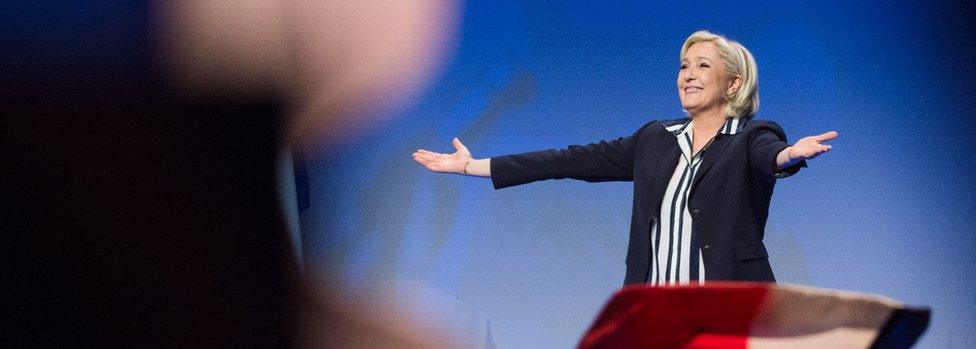
Marine Le Pen's National Rally remains a threat to Mr Macron's political movement
The first is that he over-reacts to the bad ratings, and starts changing tack - introducing crowd-pleasing tax measures, for example, to win back support.
There are some signs that he is already doing this with a new anti-poverty plan, and a promise of €6bn (£5.4bn) in tax cuts in the 2019 budget.
"And it's too much like the old politics, when presidents just reacted to the latest opinion poll," says Ms Morin.
The second danger is Europe.
Mr Macron's idealistic vision of a resurgent European Union will be put to the test in May's EU elections. But watch out for a resurgent Marine Le Pen.
A surprise poll last week put her National Rally party at level pegging with Macron's La Republique en Marche.
If she comes first - and remember her National Front did win France's EU elections in 2014 - then it will be a body blow to the president.
- Published28 August 2018
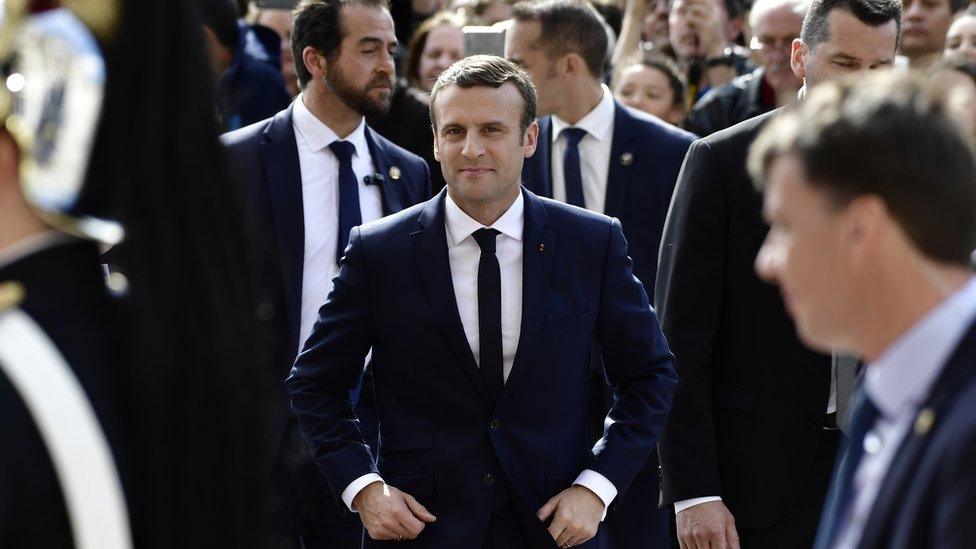
- Published16 September 2018
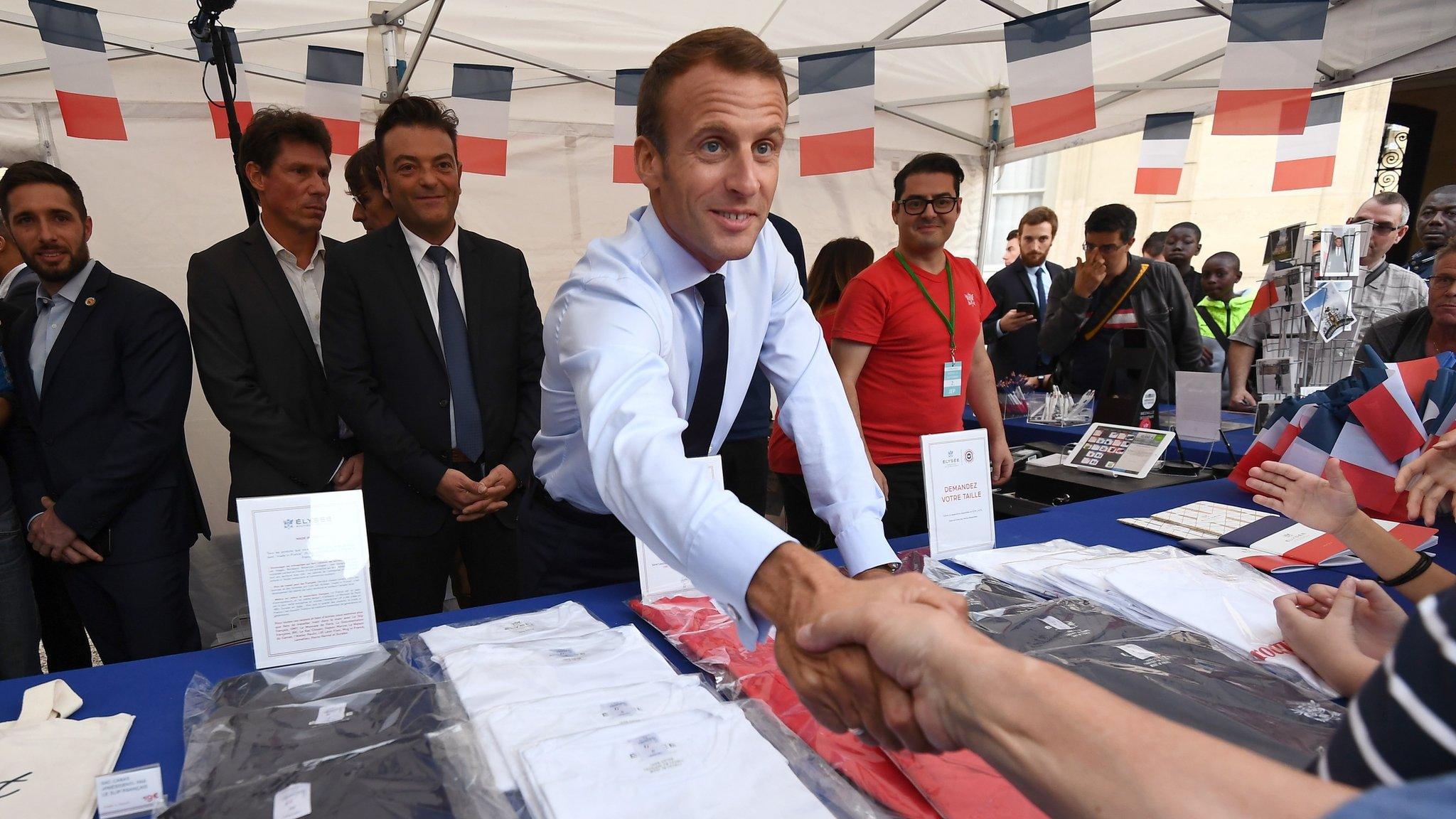
- Published19 June 2018
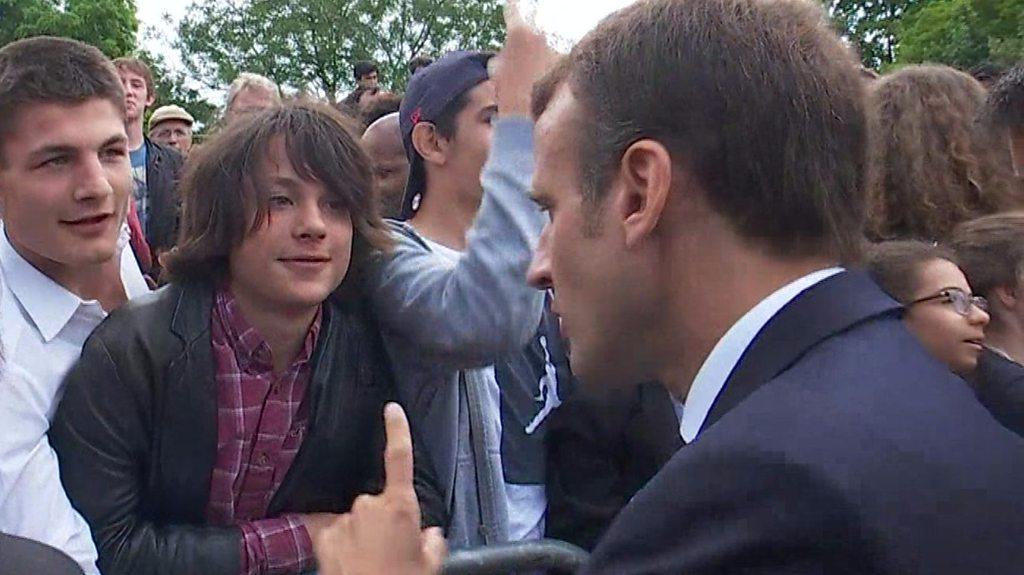
- Published19 September 2018
